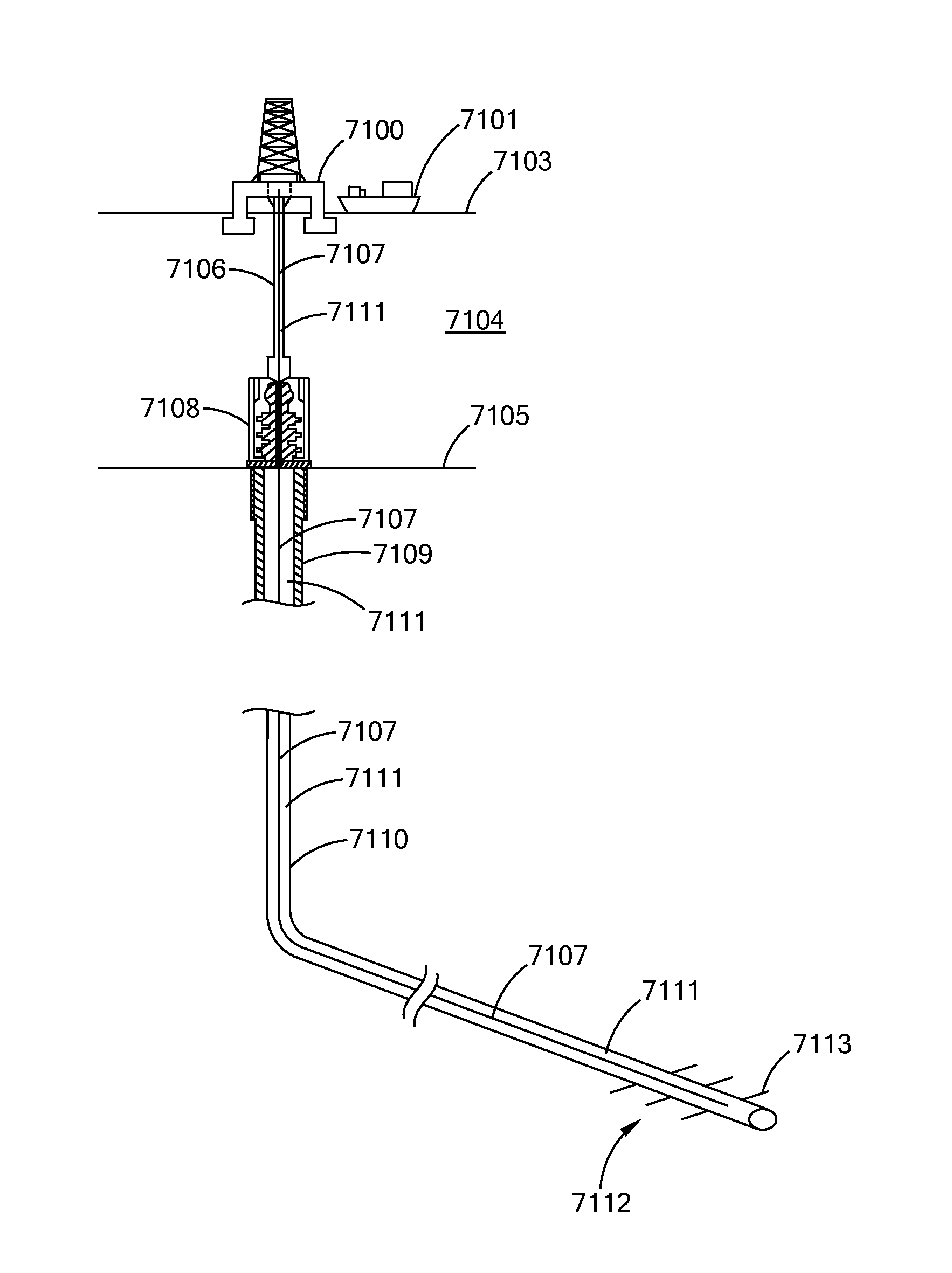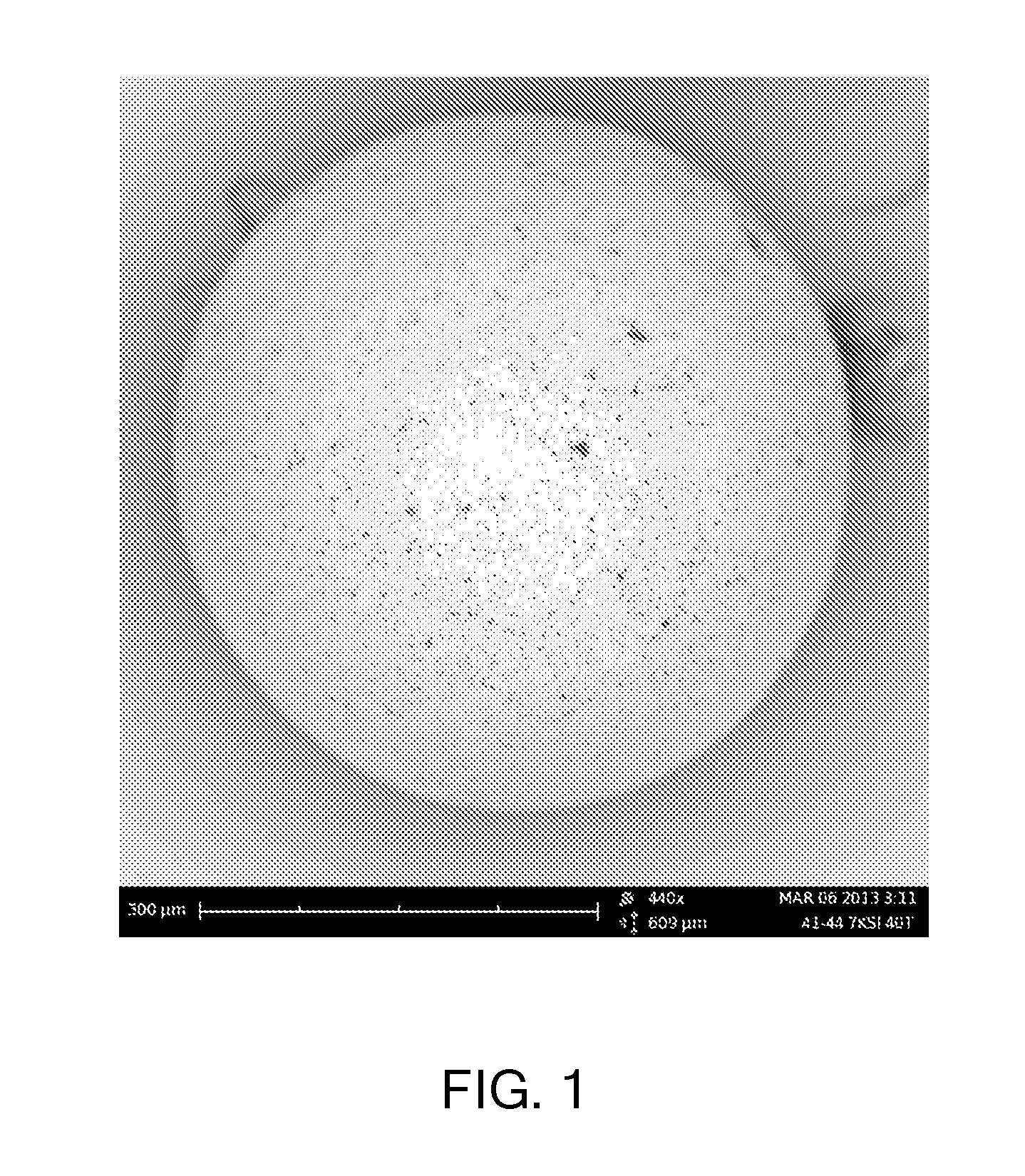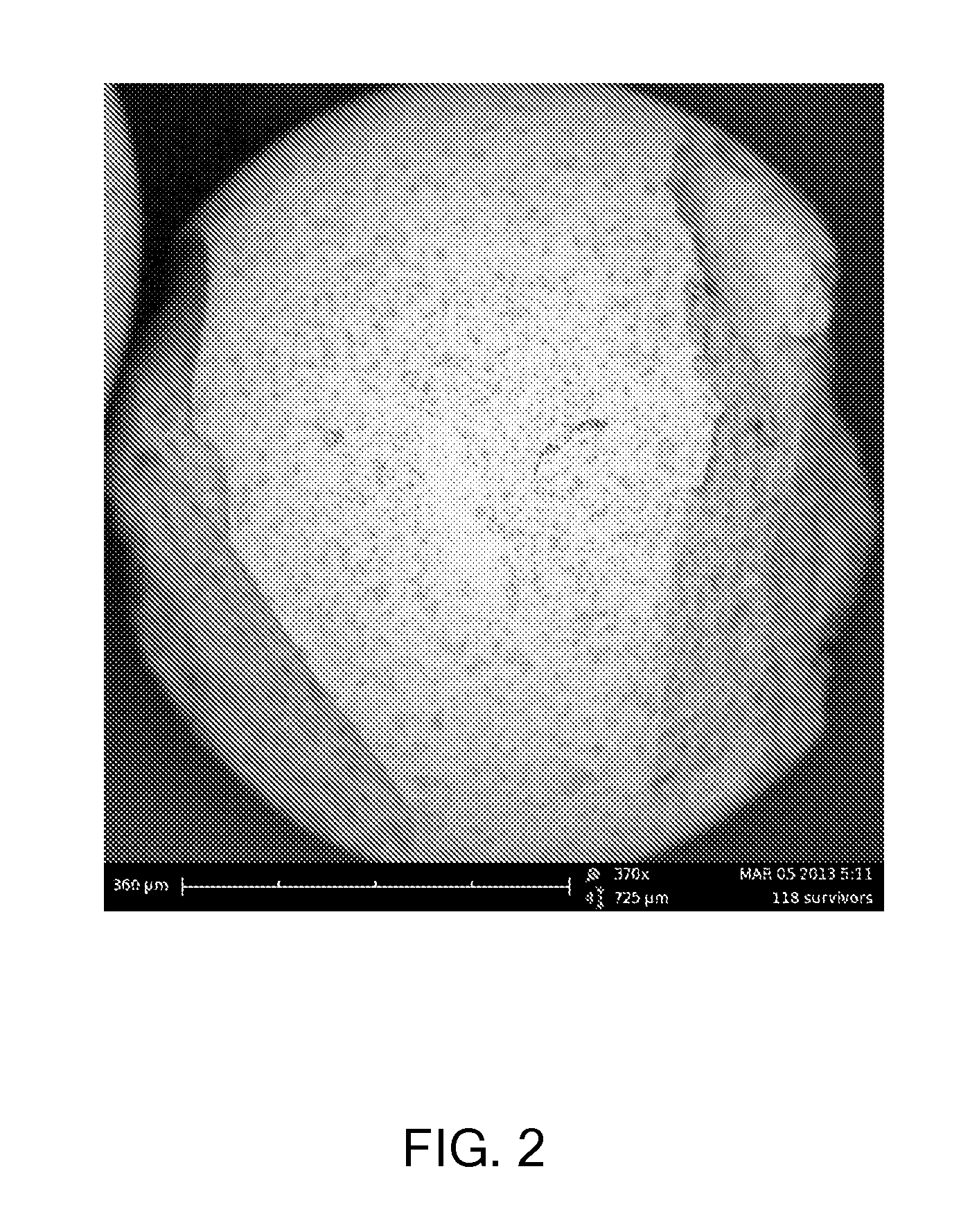Methods of Hydraulically Fracturing and Recovering Hydrocarbons
a technology of hydraulic fracturing and hydrocarbon recovery, applied in the field of synthetic proppants, can solve the problems of increasing and unfulfilled needs, not progressing at a sufficient rate and pace, and in particular proppants and fracturing fluids, so as to improve the conductivity of wells, increase the recovery of hydrocarbons, and enhance the effect of well conductivity
- Summary
- Abstract
- Description
- Claims
- Application Information
AI Technical Summary
Benefits of technology
Problems solved by technology
Method used
Image
Examples
example 1
[0280]Using a tower forming and cure system, a polysilocarb batch having 75% MH, 15% TV, 10% VT and 1% catalyst (10 ppm platinum and 0.5% Luprox 231 peroxide) is formed from a sonic nozzle having an internal diameter of 0.180 inches into droplets that fall from the nozzle into and through an 8 foot curing tower. The temperature at the top of the tower is from 495-505° C. the temperature at the bottom of the tower is 650° C. There are no discrete temperature zones in the tower. Airflow up the tower is by convection. A collection pan at the bottom of the tower is maintained at 110° C. The forming and curing are done in air. The preform proppants are removed from the pan and post (hard) cured at 200° C. in air for 2 hours. The hard cured preform proppants are pyrolized at 1000° C. in an argon atmosphere for 2 hours. The cure yield is from 99% to 101%. The char yield is 86%.
example 2
[0281]Using a tower forming and cure system, a polysilocarb batch having 70% MH, 20% TV, 10% VT and 1% catalyst (10 ppm platinum and 0.5% Luprox 231 peroxide) is formed from a sonic nozzle having an internal diameter of 0.180 inches into droplets that fall from the nozzle into and through an 8 foot curing tower. The temperature at the top of the tower is from 495-505° C. the temperature at the bottom of the tower is 650° C. There are no discrete temperature zones in the tower. Airflow up the tower is by convection. A collection pan at the bottom of the tower is maintained at 110° C. The forming and curing are done in air. The preform proppants are removed from the pan and post (hard) cured at 200° C. in air for 2 hours. The hard cured preform proppants are pyrolized at 1000° C. in an argon atmosphere for 2 hours. The cure yield is from 99% to 101%. The char yield is 86%.
example 2a
[0282]Turning to FIG. 66, there is provided a chart comparing the strength and density of an embodiment of the proppant of Example 2 with prior art proppants.
PUM
 Login to View More
Login to View More Abstract
Description
Claims
Application Information
 Login to View More
Login to View More - R&D
- Intellectual Property
- Life Sciences
- Materials
- Tech Scout
- Unparalleled Data Quality
- Higher Quality Content
- 60% Fewer Hallucinations
Browse by: Latest US Patents, China's latest patents, Technical Efficacy Thesaurus, Application Domain, Technology Topic, Popular Technical Reports.
© 2025 PatSnap. All rights reserved.Legal|Privacy policy|Modern Slavery Act Transparency Statement|Sitemap|About US| Contact US: help@patsnap.com



